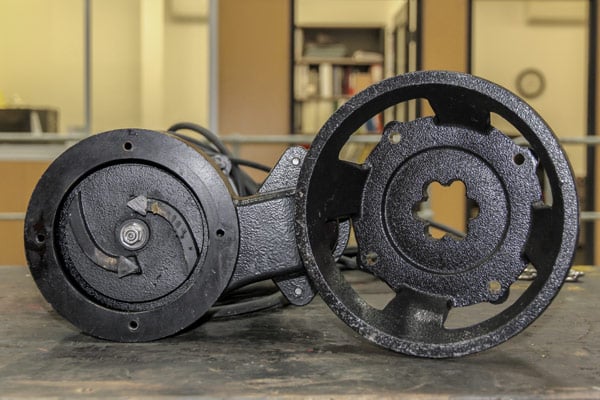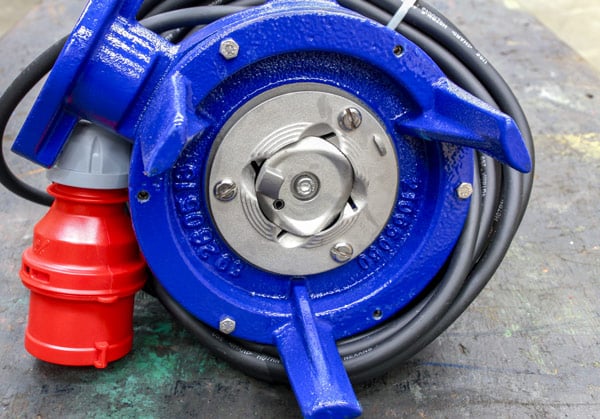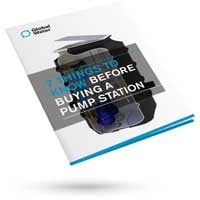Difference between cutter and grinder pumps
Global Water has been supplying wastewater transfer solutions to industry for years.

Above: Variations of pump impellers and macerators appropriate for breakdown of waste solids
Pump manufacturers have created a range of cutting devices to prevent clogs in wastewater treatment equipment.
As septic effluent and raw sewage can contain foreign material including paper and sanitary products, special consideration must b taken as to the capabilities of the pumps to reliably handle the waste without blocking.
Macerator-type pumps have the ability to break up soft solids commonly found in wastewater, but different pump types have different characteristics. Before purchasing a wastewater pump it's important to understand which is the right one for your application.
Our Global Water team help break it down…
Cutter Pumps
Cutter Pumps reduce the size of solids by utilising sharpened tungsten carbide cutting tips on the leading edge of the impeller vanes, which in conjunction with a serrated inlet, reduces the size of fibrous solids down to 25mm or smaller.
They offer a reliable performance on sewage, provided foreign products and wipes are not present in the waste system. Cutter pumps are generally lower cost and are ideal for domestic applications.
 Above: Cutter Pump at Global Water's Adelaide Head Office
Above: Cutter Pump at Global Water's Adelaide Head Office
Cutter Pumps are appropriate for:
- Lower head applications;
- 1-phase power applications;
- Discharge to a gravity main.
Grinder Pumps
Grinder Pumps utilise a grinding device at the inlet with a hardened stainless steel cutting blade rotating inside a cutting ring with a number of teeth. This powerful mechanism reduces all solids down to fine particles, much smaller than a cutter pump, and allows small diameter pipes to be used.
Behind the shredding mechanism is a high-head vortex impeller which enables the pumps to pump into pressurised sewer mains or to pump long distances.
Because of their superior shredding mechanism, grinder pumps tend to be more reliable at handling some of the tougher materials found in public access wastewater streams, such as rags, towels, debris etc. Although single phase versions are available for domestic applications, grinder pumps are traditionally used in commercial settings using three-phase power for superior torque.
For this reason, grinder pumps are traditionally used in commercial settings - and require a three-phase power system for superior torque.

Above: Grinder Pump at Global Water's Adelaide Head Office
Grinder pumps are appropriate for:
- Light commercial;
- Residential complexes;
- Commercial and municipal sewage pumping stations;
- Schools, gymnasiums and public toilets;
- Service stations.
The variety of grinder pumps available at Global Water are able to generate higher pressures than traditional centrifugal designs - this allows them to transport wastewater slurry through smaller discharge outlets.
If you’re not sure which style of pump to choose, get in touch with a Global Water team member! We’re happy to provide technical assistance, and advise you, based on the application, which wastewater pump is appropriate for you from our wide range.
Tags: Wastewater




